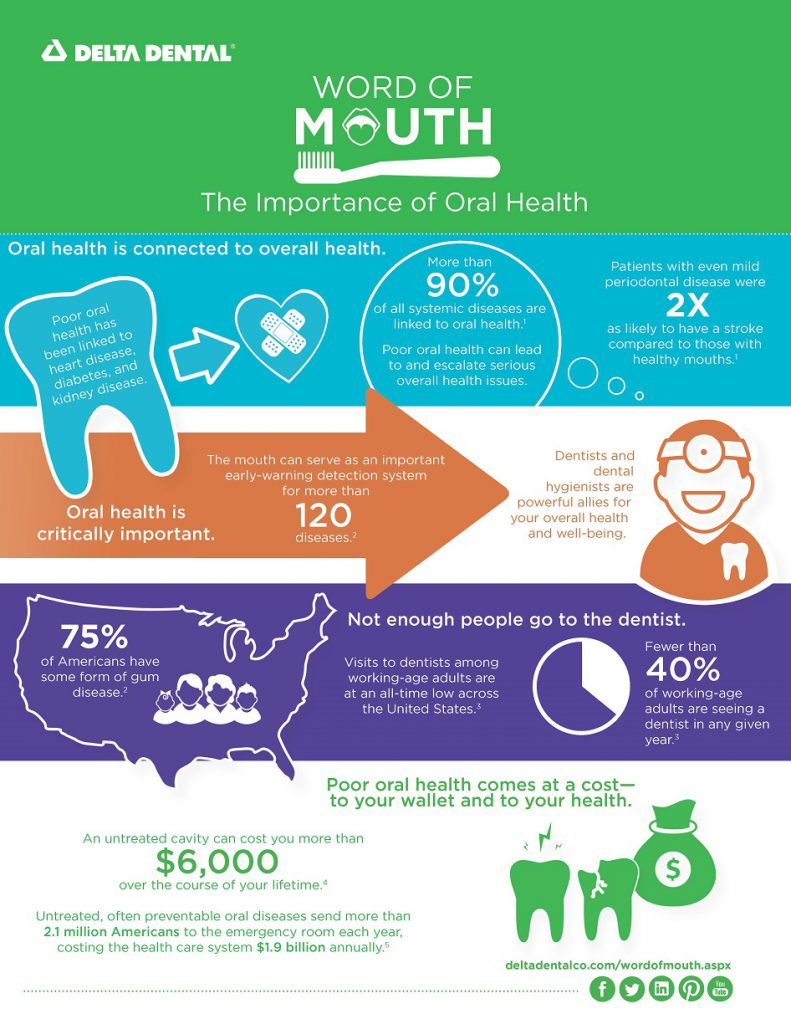Oral health – it’s not the most exciting health topic out there. And unless you have dental problems, you probably don’t think about it too often (aside from the few minutes you spend every day brushing, and maybe even flossing, your teeth). But oral health for women is important (and it’s not just about that pearly white smile)! You can get kids dentist in Denver, from here!
-
The health of your mouth is closely related to the health of your body. If you want good overall health, it starts with your mouth.
-
Your mouth and oral health needs change throughout your life. Your oral hygiene may be pretty routine right now, but that can change!
-
The role you might play in promoting good oral health is essential for your family and your loved ones – especially if you are a mother. You have to click for source and book appointment. (The tooth fairy doesn’t magically schedule all those dentist appointments!)
Part 1 of this conversation introduces the connection between oral health and overall health for women. Part 2 discusses tips for taking care of your oral health throughout the lifespan.
Let’s first talk about the connection between your mouth and the rest of your body. Think of your mouth as a gateway. It’s the start of your digestive system (esophagus, stomach, intestines) and your respiratory system (airway, lungs), so it’s condition is important! (Have you ever tried eating with a canker sore or a missing tooth? Ouch!) Also, anything that gets introduced to your mouth will eventually make it’s way to other parts of your body. The impact can be positive (for example, eating well keeps your whole body healthy), or it can be negative (eating or drinking poorly, using tobacco, and being exposed to germs, injury, or infection via your mouth can lead to diseases like heart disease or even cancer). This connection also works in reverse – where what’s happening in your body affects your mouth. For example, someone with diabetes is more likely to have gum disease and cavities; a woman with osteoporosis can loose teeth more easily; or a pregnant woman may notice more gum bleeding.

Speaking of pregnancy – a woman goes through many hormonal shifts during her lifetime, and all of them can impact oral health. Puberty, menstruation, contraception, pregnancy, and menopause all come along with their own potential oral health problems. Here’s a breakdown:
-
During puberty: hormones increase blood flow to your gums, which can make them red, tender, swollen, and more likely to bleed during brushing and flossing. During this time frame, young women also may need to consider mouth protection during athletic activities, cleaning of braces, and establishing healthy eating habits.
-
Menstruation: The day or two before the start of a period, some women experience bright red swollen gums, canker cores, or bleeding gums.
-
Contraception: Certain methods of birth control which increase the level of progesterone can increase swelling in the gums.
-
Pregnancy: Significant hormone level changes can cause gum disease, and vomiting during morning sickness can cause teeth to wear down. Many pregnant women have some form of oral health problems, so your dentist may recommend more frequent cleanings during your second or early third trimester. Another thing to consider is that newborns get their oral bacteria from their moms, so your oral health directly affects your baby’s!
-
Menopause: Aging, osteoporosis, medications, and hormonal changes play a part. Tooth loss, dry mouth, altered taste, and greater sensitivity to hot and cold foods/drinks are all possibilities during this stage of life.